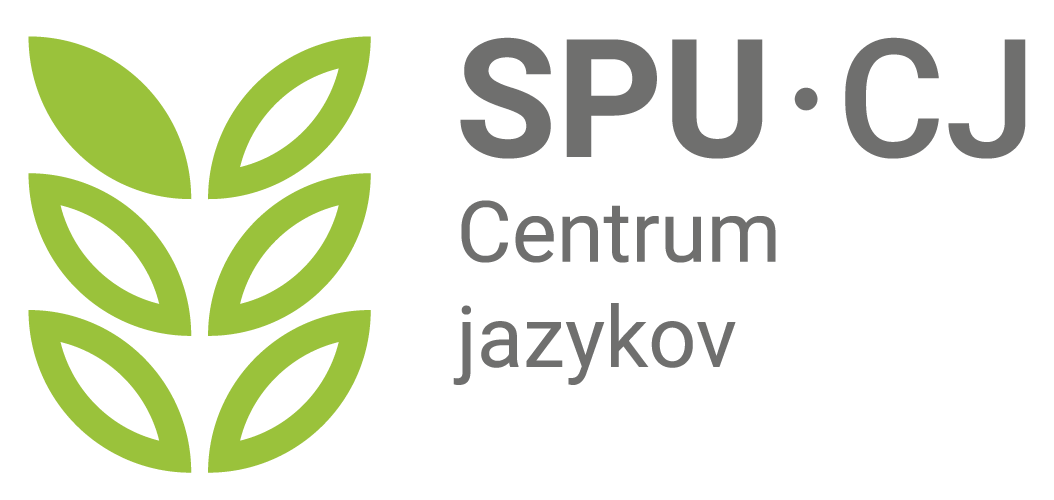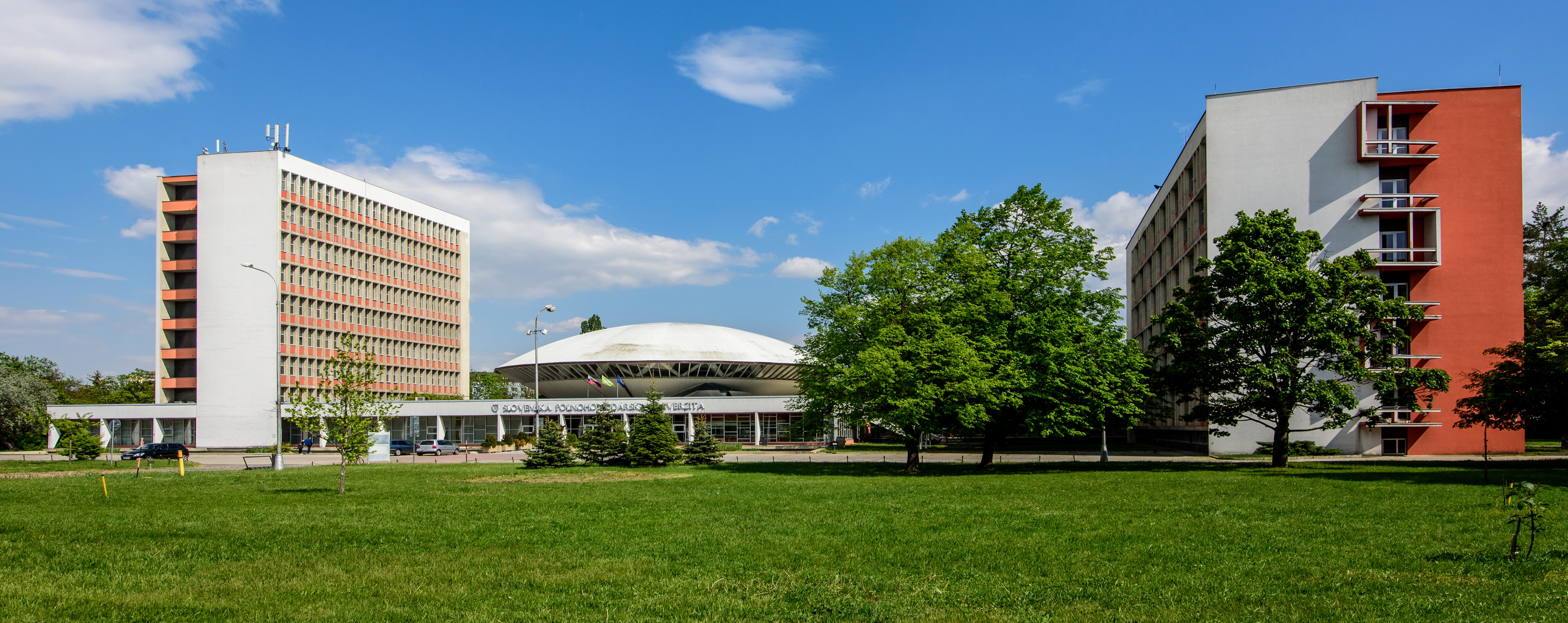Education centre: Centre of Languages
Languages: English, German, Russian, Spanish
Levels of proficiency: beginner, elementary, pre-intermediate, intermediate, advanced
Number of lessons: 30 lessons/2 lessons per week
Form of completion: certificate
Language teachers –employees of the Centre of Languages:
English language:
Mgr. Dominika Antalová
Mgr. Petra Čančo
Mgr. Andrea Holúbeková, PhD.
PhDr. Jarmila Horváthová, PhD.
Mgr. Katarína Klimentová, PhD.
Mgr. Eva Matušeková, PhD.
German language:
Mgr. Stanislava Gálová, PhD.
Mgr. Ivana Grežová, PhD.
Russian language:
Mgr. Mária Fördösová, PhD.
Spanish language:
Mgr. Katarína Klimentová, PhD.
Objectives: The aim of the language courses is to focus on the development of language skills of teaching and research staff, as well as on the further professional development of administrative and technical staff of the Slovak University of Agriculture in Nitra in the field of foreign language competences in accordance with (1) the requirements for general key competences listed in the National System of Occupations, (2) the key competences for lifelong learning, (3) and the Common European Framework of Reference for Languages (CEFR). The courses are aimed at the development of four basic language skills (reading comprehension, listening comprehension, speaking and writing) and at acquiring general as well as technical vocabulary necessary for the performance of individual professions in a higher education environment, in which teaching, research, administrative and technical staff meet with students, university teachers and other university colleagues from abroad.
Beginner (level [lt] A1)
The course is focused on mastering basic language skills in a particular language. The student is able to understand frequently used everyday expressions and basic phrases and can use them as needed. The student can read and understand simple text, formulate simple questions about basic needs and common topics. He/She is also able to respond to the questions while the person he/she is communicating with speaks slowly and clearly.
Elementary (level A1 – A2)
At the end of the course, the student is able to communicate in a foreign language simply and effectively. He/she can introduce himself/herself and establish communication in a formal and informal environment. In terms of written competencies, the student is able to write about everyday aspects of his/her life in simple sentences, understand and correctly fill out forms. When reading written materials, he/she understands short texts with frequent vocabulary and can select basic information. As for listening comprehension, he/she can understand the necessary basic information when it is presented at an appropriate pace and in standard language. In addition to the common means of expression of a neutral functional style, the student will also acquire basic professional vocabulary.
Pre-intermediate (level A2 – B1)
At the end of the course, a student is able to participate at common conversation topics, e.g. a
small talk with colleagues, make appointments or have a telephone conversation. When reading
and listening he/she can recognise the main conclusions and argument line. Concerning written production, they will be able to conduct basic e-mail communication of both a private and professional nature. In addition to the common means of expression of a neutral functional style, the student will also acquire basic professional vocabulary.
Intermediate (B1 – B2)
At the end of the course, the student will be able to communicate and engage in conversation on topics that he/she knows or that are related to their field of work. The student will also be able to present, briefly explain and defend his opinions. When reading and listening, he/she will understand texts with everyday vocabulary and terminology related to their work. Concerning written production, the student will be able to compose a structured and coherent text, conduct e-mail communication of both a private and professional nature as well as compose and deliver a PowerPoint presentation on a given topic. In addition to the common means of expression of a neutral functional style, the student will also acquire a professional vocabulary.
Advanced (B2 – C1)
The course is focused on the development of oral communication in a foreign language. Students learn to express their thoughts fluently and effectively in a variety of situations, including both formal and informal contexts. The course content emphasizes the ability to express opinions, present arguments, respond to questions and lead a discussion. Through practical activities, simulations and role-plays, students practice active listening, expand their vocabulary and strengthen their fluency, pronunciation and grammatical accuracy. At the end of the course, students will be able to interpret and analyse audio texts, read authentic texts with understanding and communicate effectively in the target language. Students are ready to communicate confidently and accurately in a variety of social and work situations.
Information about upcoming and ongoing courses will be continuously updated on the Centre of Languages website in the Announcements section.

